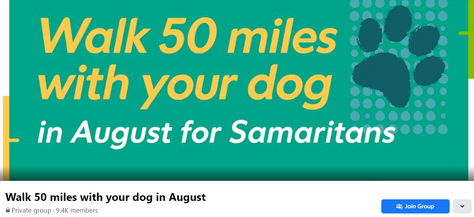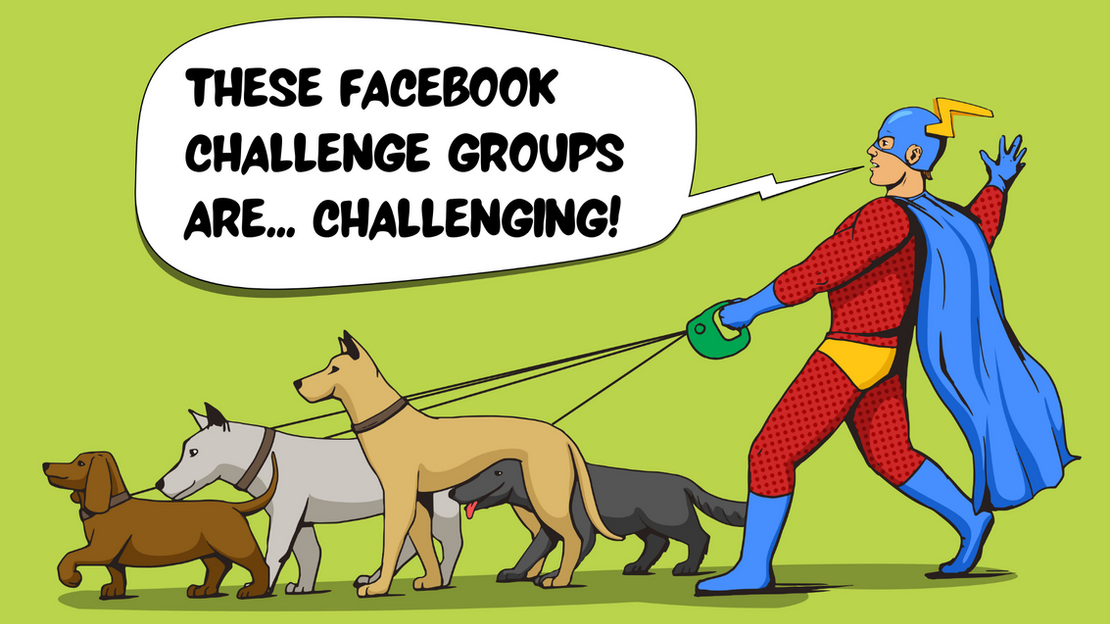What are Facebook challenge groups and how can you use them to build an amazing fundraising campaign?
What is a Facebook Challenge Group?
We’ve seen Challenge Groups explode in popularity over the last few years. Organisations of all types have had to scramble for new fundraising activities. With ever-changing restrictions on in-person events, creative replacements have become essential.
A Facebook Challenge Group is a time-limited, closed, single-topic group. You can use them for fundraising, lead generation or any other creative purpose. For charities, they’ve been replacing in-person fundraising events with great success.
The group provides a structure for deploying content over a fixed period of time. Savvy event planners and marketers can use this built-in format to divide up a big topic or group goal. The smaller, more digestible pieces of content go out over the duration of the challenge.
How would you use one?
The only limit is your imagination. The better you can put that to use, the more likely your challenge group will be a success. The novelty of the format has worn off and so, the more interesting and creative the challenge, the better.
 As an example – a dog walking challenge may be a better choice than a solo walk.
As an example – a dog walking challenge may be a better choice than a solo walk.
A challenge group can take the structure of a course. Each day of the challenge, you can share written content, video, or go live.
Advantages of the Challenge Group format
One of the advantages of Challenge Groups is the element of familiarity. The most active folks in your community are likely to be comfortable with Facebook. This makes interactions easy and low-friction for participants. They already know how to like, comment and post and will appreciate not needing to sign up for something new.
There’s also the advantage of being able to pre-plan the entire challenge ahead of time. This gives you more time during the challenge to work with user-generated content (UGC) and create your own reactive content.
The challenge structure also provides a built-in community. You’ll be starting out with a group of people organised around a common interest and goal. This foundation always makes community management easier and allows for new members to be welcomed into the community, creating more followers for you. Being able to run an open registration period also gives you more time to promote and market your event.
What are some common issues with Facebook Challenge Groups?
- Moderation. You’ll need adequate resourcing and training of your moderators. It’s important to train them both in the running of the group and the correct use of standard response templates (SRTs). They need to be equipped to both enforce guidelines but also provide useful information and responses for the community. This prepares your moderators for success and prevents wasted effort. There’s no need to write the same answers anew each time a question comes up.
- Time and effort. Much of the work must be done before the challenge beings. As you’re planning your challenge, think through each step from beginning to final day and everything in between. Look at everything from the participant’s perspective. Make note of any potential issues or questions they may have. Prepare responses that address them, taking tone into account.
- Ensure your group guidelines are clear and understandable. When moderating, the team can select a guideline as the reason for removing or hiding a user comment. This creates a clear reasoning (and ‘paper’ trail) behind actions and also helps the users to understand the rules. Put an emphasis on safety and protecting your community.
- As per usual, tech functionality can be glitchy. Facebook can struggle to handle more than one admin user sharing an account. If your team will be sharing accounts, scheduling and managing overlap is crucial. Centralise your credential sharing and make sure security and permissions are in order. This will prevent inconvenient downtime and login problems.
- Moderator burnout is a very real possibility. While your office work day may end at 6pm, the Challenge Group is likely to see activity around the clock. Contingency planning here is important so as not to overwhelm your team.

Facebook Challenge Groups: Top Tips for Success
- Gauge community interest: Consider running a poll before choosing an activity to gauge member interest.
- Build a registration deadline into your strategy: Like a course, participants register ahead of time. Once registration ends, the group closes and the challenge begins. Only members who have signed up can participate once the challenge is underway. This can build excitement and momentum by having a set deadline.
- Call to action: Provide members with a call to action and an assignment to keep the momentum going. Include a suggestion to share the challenge with friends who might not be part of the community, but would be interested in the challenge itself.
- Share community content: As the challenge runs its course, share content on a regular schedule. Encourage, or even require participants to react and interact with the content. They can also post their own updates and progress towards the goal as the challenge goes on.
How can we support your organisation’s Facebook Challenge Group?
 We have supported several of our clients to run successful challenge groups. We can step in at any part of the process, from strategy and planning to last-minute emergency cover.
We have supported several of our clients to run successful challenge groups. We can step in at any part of the process, from strategy and planning to last-minute emergency cover.
The StrawberrySocial team comprises expert community and social media professionals. Together, we have decades of combined experience in social media, digital events management and online moderation. We hand-select team members, screening for sensitivity, emotional intelligence and empathic listening skills. We provide 24/7 coverage, with team members located all over the world.
Team members also have online safety qualifications such as CEOP and NSPCC and all are Moderation Gateway certified and DBS checked.



 September 27, 2022
September 27, 2022  Share This Post
Share This Post